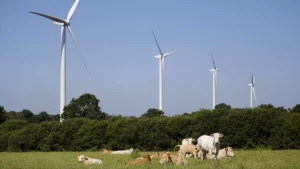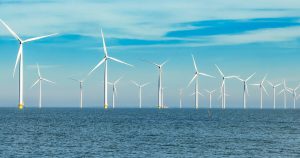Europe’s Emerging Renewable Energy Policies

As we stand at the crossroads of environmental sustainability and economic growth, Europe has emerged as a beacon of progress in the realm of renewable energy. The continent’s commitment to renewable energy policy is not just a response to the pressing issues of climate change but also a strategic move towards a more sustainable and resilient future. Europe’s emerging renewable energy policies are designed to reduce carbon emissions, enhance energy security, and foster technological innovation, setting a global example for sustainable development.
Europe’s emerging renewable energy policies are comprehensive and forward-thinking, aiming to transform the energy landscape across the continent. These policies encompass a wide range of initiatives, from promoting the use of solar and wind energy to investing in cutting-edge technologies like hydrogen and battery storage. By setting ambitious targets and providing robust support mechanisms, Europe is paving the way for a cleaner, greener future.
Current State of Renewable Energy Policies
Europe’s current renewable energy policies are a testament to its commitment to achieving carbon neutrality by 2050. This ambitious goal is at the heart of the European Green Deal, which outlines a comprehensive roadmap for reducing greenhouse gas emissions and transitioning to a sustainable energy system. The policies emphasize the need for a significant increase in the share of renewable energy in the overall energy mix, with a particular focus on wind, solar, and bioenergy.
To achieve these goals, Europe’s renewable energy policy encourages substantial investment in green technologies. Governments across the continent are providing financial incentives, subsidies, and tax breaks to support the development and deployment of renewable energy projects. This proactive approach is not only driving the growth of the renewable energy sector but also attracting private sector investment, creating a vibrant and dynamic market for green technologies.
Key Drivers for Policy Changes

One of the key drivers for the recent changes in Europe’s renewable energy policies is the EU’s targets for 2030. The European Union has set an ambitious target of sourcing at least 32% of its energy from renewable sources by 2030, with the potential to increase this target in the coming years. This target is part of a broader strategy to reduce greenhouse gas emissions by at least 55% by 2030, compared to 1990 levels. These targets are driving policy changes at both the EU and national levels, encouraging member states to adopt more aggressive measures to promote renewable energy.
Technological advancements are also playing a crucial role in shaping Europe’s renewable energy policies. Innovations in areas such as wind and solar power, energy storage, and smart grids are making renewable energy more efficient and cost-effective. These technological advancements are enabling Europe to set more ambitious targets and implement more effective policies, driving the transition to a sustainable energy system.
Challenges and Barriers to Implementation
Despite the progress made, there are still several challenges and barriers to the implementation of renewable energy policies in Europe. One of the main challenges is the inconsistency in renewable energy policies across different countries. This lack of uniformity can hinder the unified implementation of renewable energy projects and create obstacles for cross-border cooperation. To overcome this challenge, there is a need for greater harmonization of policies and regulations at the EU level.
Regulatory complexities also pose significant challenges to the adoption of renewable energy policies in Europe. The regulatory framework for renewable energy is often complex and fragmented, making it difficult for project developers to navigate the system and obtain the necessary permits and approvals. Simplifying the regulatory process and reducing bureaucratic hurdles are essential steps to accelerate the deployment of renewable energy projects.
Case Studies of Successful Renewable Energy Policies
There are several case studies of successful renewable energy policies in Europe that highlight the continent’s progress in this field. For example, Denmark has been a global leader in wind energy, with a comprehensive policy framework that supports the development and deployment of wind power projects. The country’s commitment to renewable energy has resulted in wind power accounting for nearly 50% of its electricity consumption.
Another success story is Germany’s Energiewende, a long-term energy transition strategy aimed at reducing greenhouse gas emissions and increasing the share of renewable energy. Germany’s policies have led to significant investments in solar and wind energy, making the country a global leader in renewable energy capacity.
Future Trends in European Renewable Energy
Looking ahead, there are several future trends in European renewable energy that are likely to shape the policy landscape. One of the key trends is the increasing focus on incentives for green technology investment. Governments across Europe are expected to continue providing financial support and incentives to attract private sector investment in renewable energy projects. This will help drive the growth of the renewable energy sector and accelerate the transition to a sustainable energy system.
Another important trend is the harmonization of cross-border energy regulations. As Europe moves towards a more integrated energy market, there is a growing need for harmonized regulations to facilitate cross-border cooperation and ensure the smooth functioning of the energy market. This will help create a more efficient and resilient energy system, capable of meeting the continent’s energy needs in a sustainable manner.
Role of Technology and Innovation
Advancements in technology are playing a crucial role in bolstering Europe’s renewable energy policy framework. Innovations in areas such as wind and solar power, energy storage, and smart grids are making renewable energy more efficient and cost-effective. These technological advancements are enabling Europe to set more ambitious targets and implement more effective policies, driving the transition to a sustainable energy system.
Innovation is also driving Europe’s renewable energy policy for sustainable growth. By investing in research and development, Europe is fostering the development of new technologies and solutions that can help address the challenges of climate change and energy security. This focus on innovation is not only driving the growth of the renewable energy sector but also creating new opportunities for economic growth and job creation.
Impact on European Economy and Society

The impact of Europe’s renewable energy policies on the economy and society is significant. Renewable energy policies are boosting economic growth and job creation by attracting investment in green technologies and creating new industries and markets. The growth of the renewable energy sector is creating a wide range of job opportunities, from manufacturing and construction to research and development and maintenance.
In addition to economic benefits, renewable energy policies are also reducing societal reliance on fossil fuels. By promoting the use of renewable energy sources, Europe is reducing its dependence on imported fossil fuels, enhancing energy security, and reducing greenhouse gas emissions. This is not only helping to mitigate the impacts of climate change but also improving public health and quality of life by reducing air pollution and other environmental impacts.
Conclusion:
In conclusion, Europe’s emerging renewable energy policies are a testament to the continent’s commitment to sustainability and innovation. By setting ambitious targets, fostering technological advancements, and addressing the challenges and barriers to implementation, Europe is paving the way for a cleaner, greener future. The impact of these policies on the economy and society is profound, creating new opportunities for growth and improving the quality of life for all Europeans.










